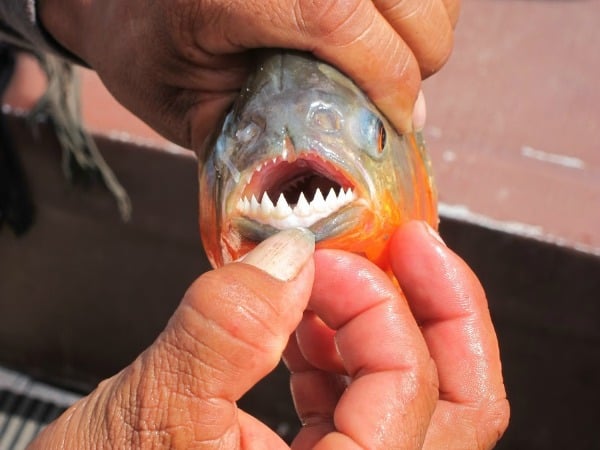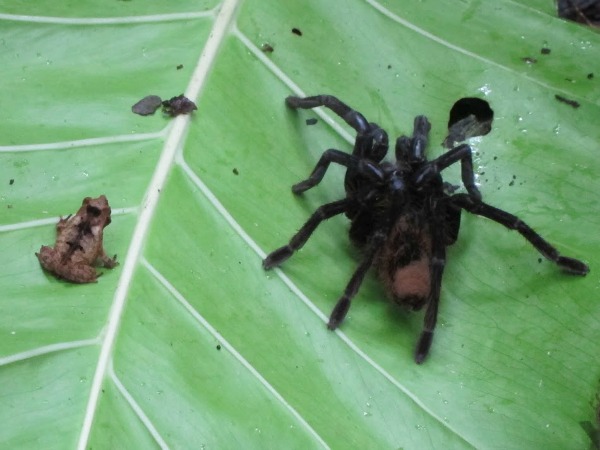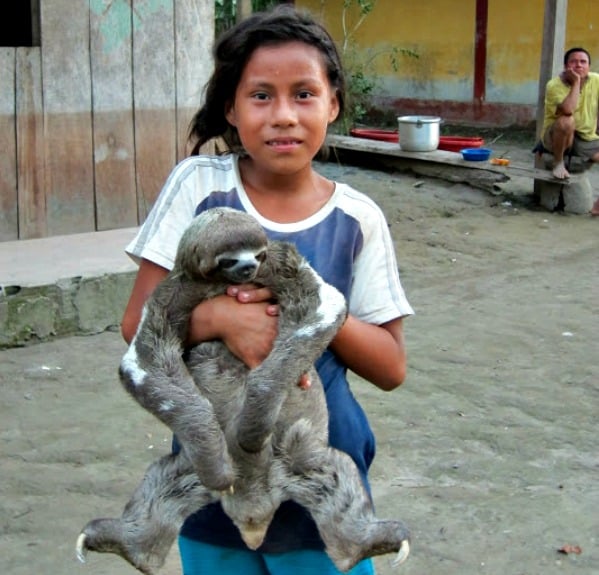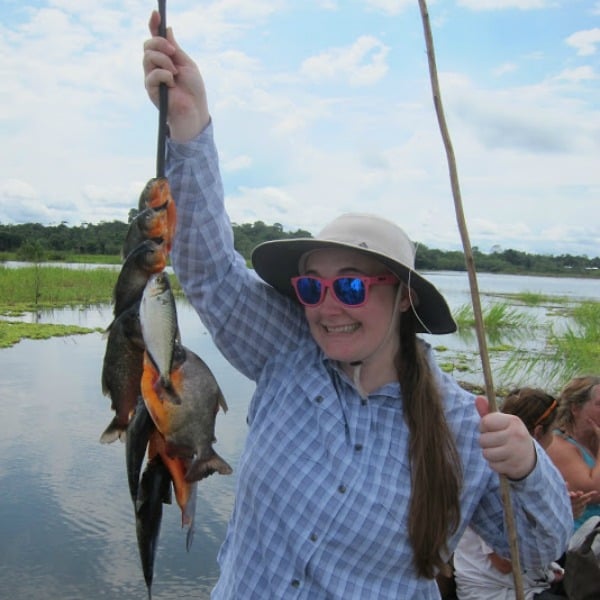
“Piranhas get a bad rap,” she says. “They don’t want to go after humans.”
Heckel’s lesson plans, always rich in thought-provoking exercises, have been even more so this year thanks to a trip to the Peruvian Amazon last summer organized by GEEO, the Global Exploration for Educators Organization. (She learned about the teacher travel group from HBW music teacher Dan Halpern, who is a friend of GEEO’s founder.)
“We have a more global world and we teachers need to share our experiences with our students,” says Heckel. “We need to help them understand why people do what they do.”
Heckel had to do quite a bit of homework to do before her plane landed in Iquitos, the largest city in the world that is only accessible by water or air (good Jeopardy trivia). She had to read up on the remote tropical jungle and write up a lesson plan detailing how she would incorporate her travels into her teachings.
Once on board the boat that was the floating classroom for Heckel and her fellow teacher voyagers during the 10-day trip, Heckel would start her day with 6 a.m. excursions to see birds or wildlife, from blue morpho butterflies to spider monkeys and jaberoos, a highly endangered black-necked stork. She got to feed river manatees and see the jungle from a rope bridge 100 feet in the air.
“We went out with one tribe in their dugout canoes,” says Heckel. “They only spoke their local language so I would point to the birds and animals and they would tell me their names.” She also got a consultation from their shaman or healer, and had lunch with a tribal family. “It was one of the best meals I have ever had in my life,” Heckel adds.
Back at HBW, students have a new perspective on biodiversity thanks to Heckel. Science students are studying different rainforest creatures and the human and environmental challenges they face, to see why some are threatened with extinction. Her anthropology cycle class is studying the Cocama, the indigenous tribe that Heckel got to meet. “We’re talking about the impact of mining and slash-and-burn agriculture,” Heckel says. “We’re talking about why these areas are important and what we need to do to protect them. With climate change, people don’t often see the effects right in front of them and they don’t see the need to do something.”
The lesson had an impact on Alena Gabbe, an eighth grader who had the cycle class at the start of the school year. “We learned a lot about the illegal logging there,” she said of the Peruvian Amazon. Gabbe also learned that what passes for a household pet in the Amazon is very different from a pet in Verona. “Ms. Heckel told us she visited a village and a girl had a pet sloth,” marvels Gabbe, who has a pet dog.
One other thing the middle-schoolers are learning: The importance of being educated beyond the classroom. “I think being a life-long learner is important,” says Heckel. “It keeps my mind engages and it is a good example for my students.”

